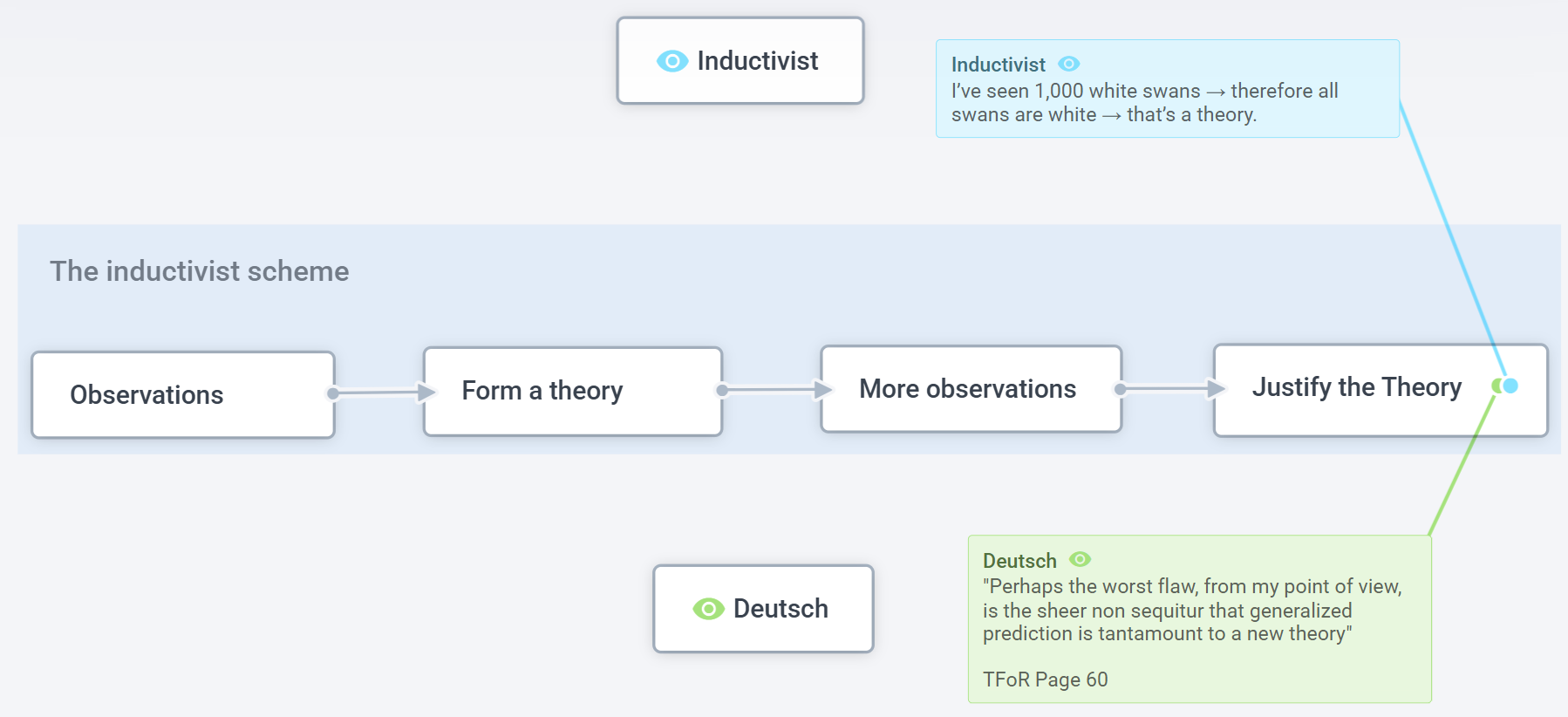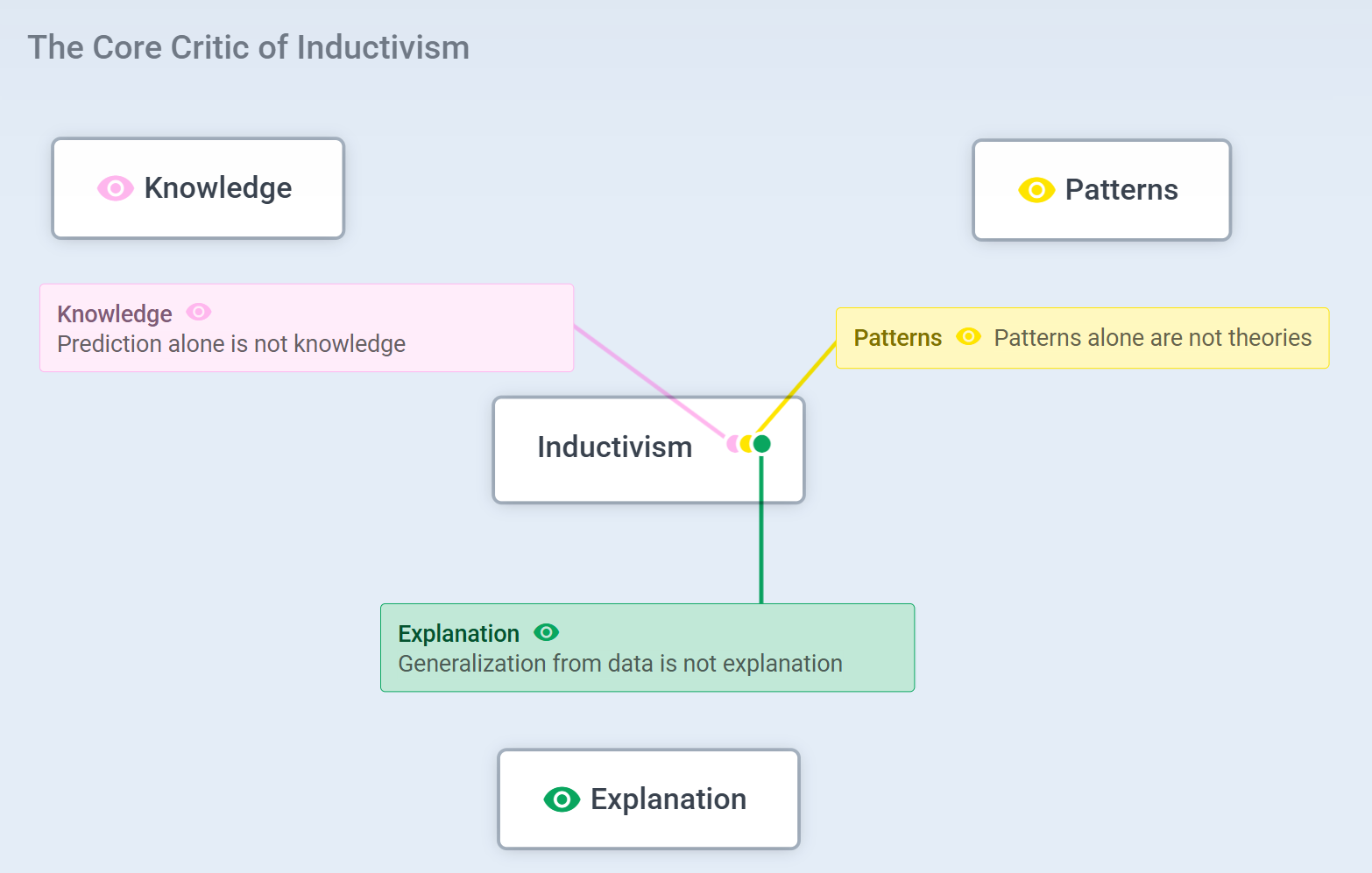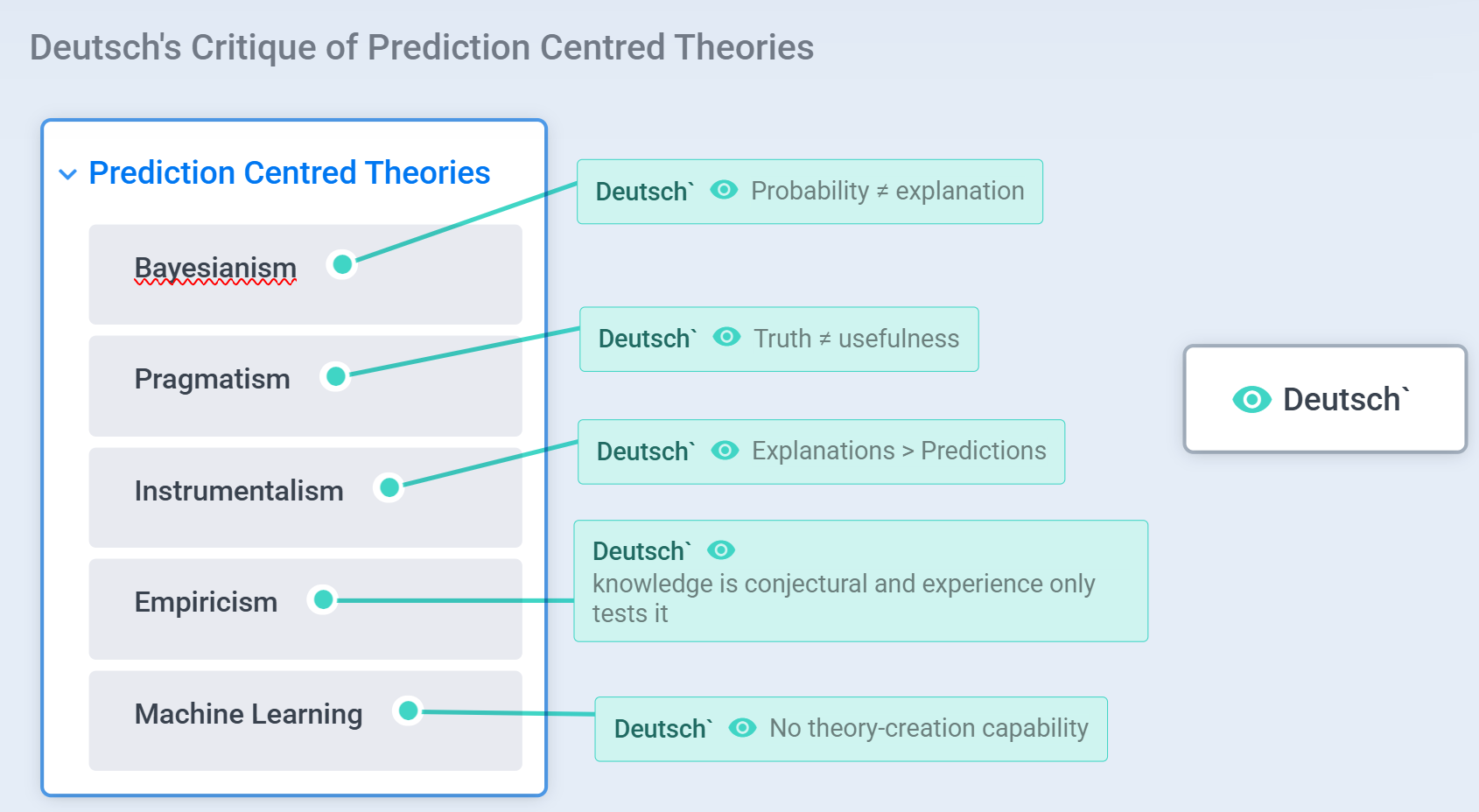
David Deutsch's Case Against Induction
30 Oct 2025In The Fabric of Reality (TFoR), chapter 3, David Deutsch mounts a direct critique of inductivism.
This is worth understanding because inductive reasoning is still widely used to form beliefs about reality, and it gives the illusion of justification and plays no role in how genuine knowledge is created.
Introduction
Inductivism is the idea that knowledge can be justified by accumulating observations and generalizing from them.
A simple example often used to illustrate it is: I have seen one thousand white swans, therefore all swans are white, and this generalization is treated as a theory.
On page 60 of TFoR, Deutsch explains that making generalized predictions from observed patterns does not amount to creating a theory. For him, a theory is an explanation. Simply noticing a pattern and expecting it to continue is not the same as offering an account of why it occurs.
In other words, extending a pattern into the future is not explanation. It is merely expecting a pattern to continue, not explaining why anything happens.

Induction plays no role in epistemology
Epistemology is the branch of philosophy concerned with the nature, origin, and limits of knowledge.
When you ask someone “How do you know that?” you are probing the epistemological method behind their conclusion.
Deutsch’s critique is that induction cannot explain or justify how knowledge is created:

Critiquing all forms of prediction-centred epistemologies
While Deutsch focuses primarily on critiquing inductivism, he also briefly notes other prediction-centred epistemologies on page 61. To better understand his position on these, I reviewed several of his interviews and have proposed a reference image below that attempts to summarise his perspective.
Please interpret the diagram with caution. It is not a definitive representation of Deutsch’s views, but rather as a helpful way to illustrate other epistemological approaches that invite similar criticisms.
